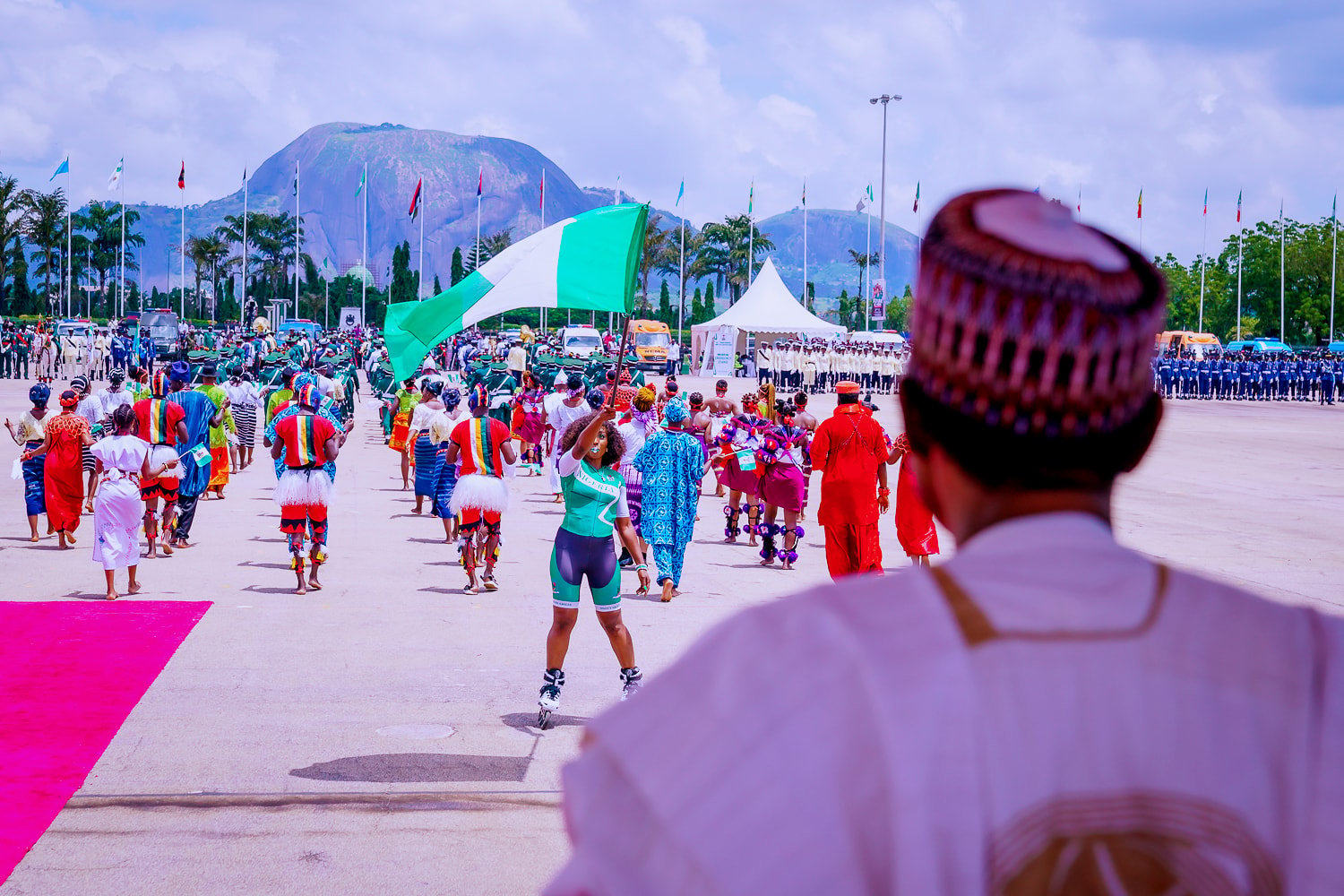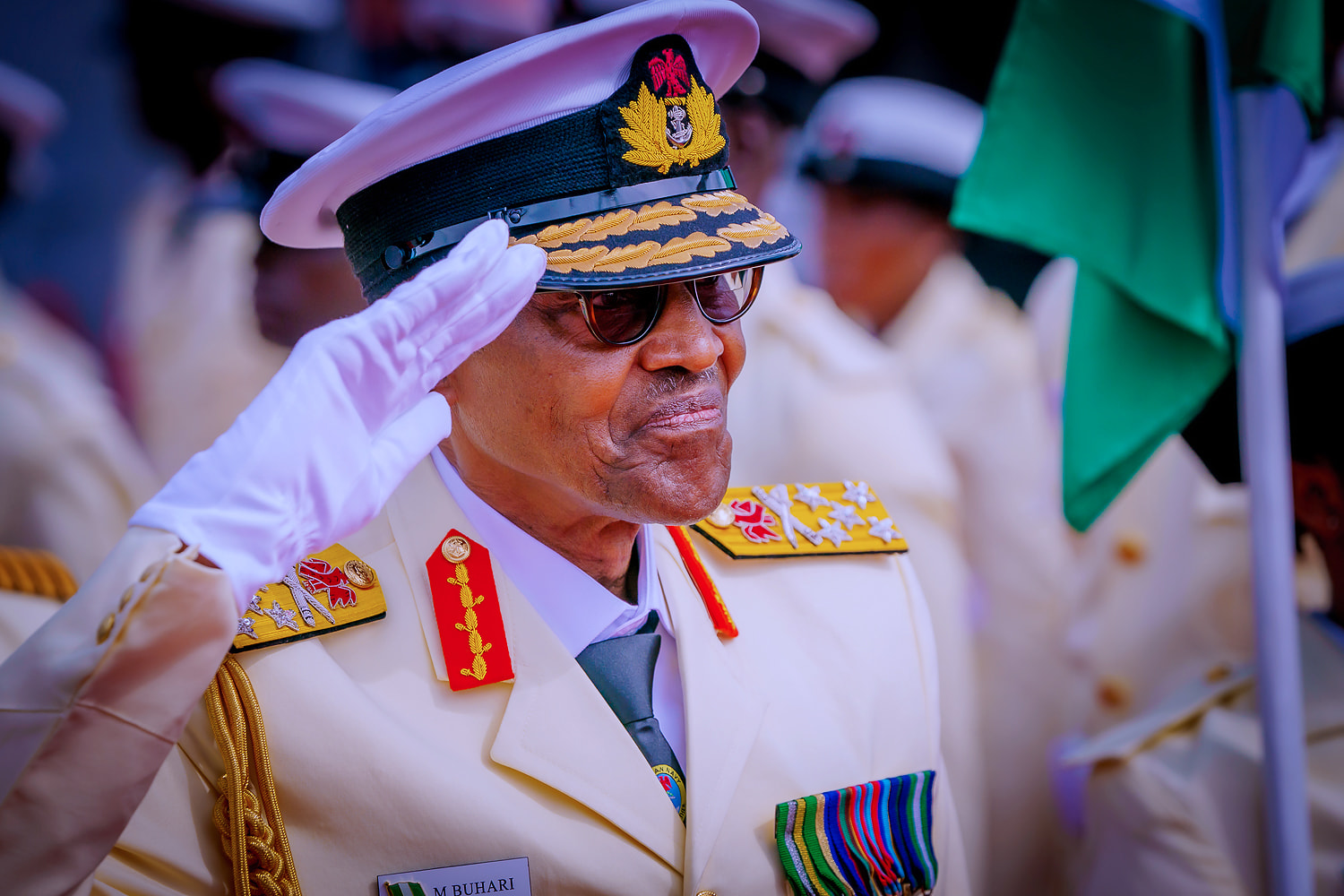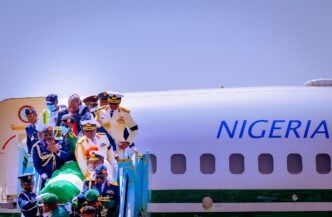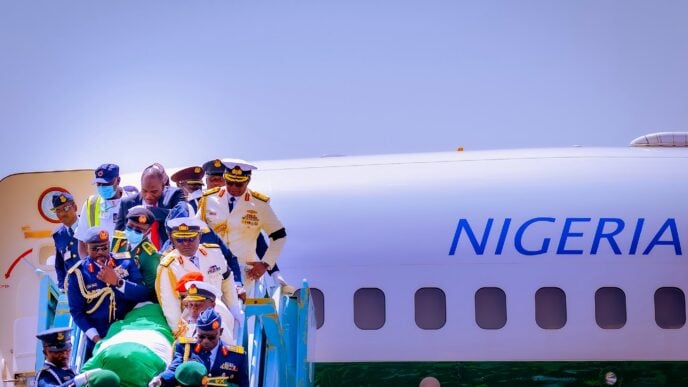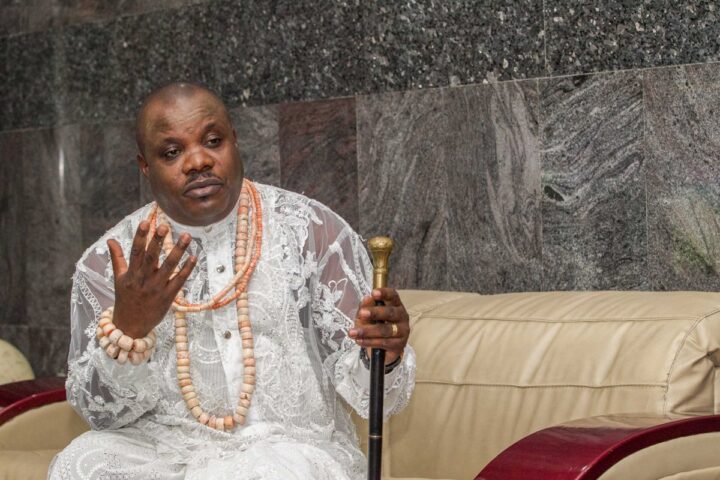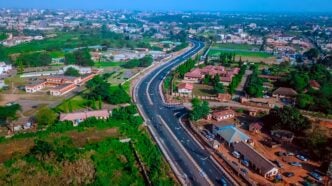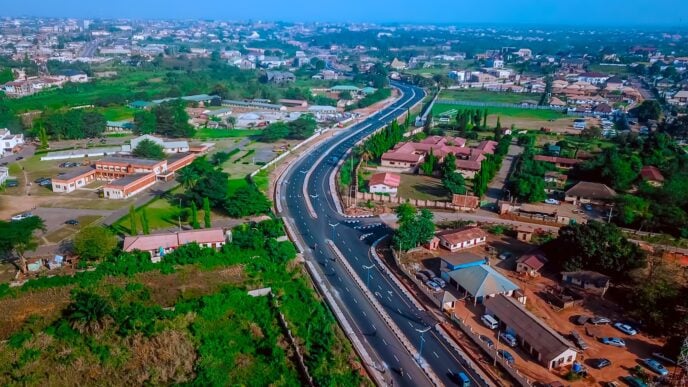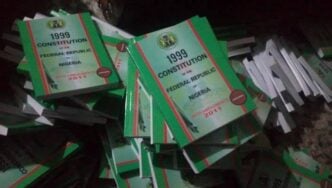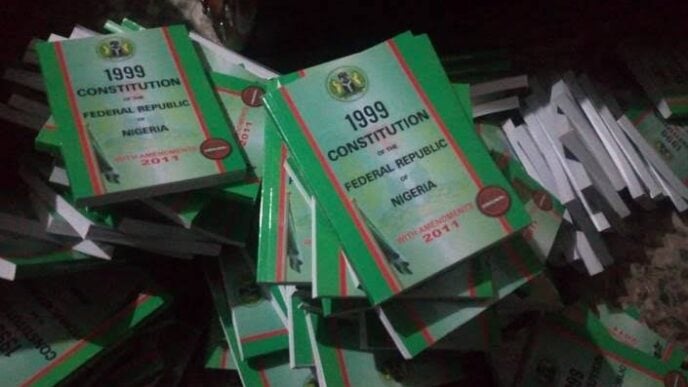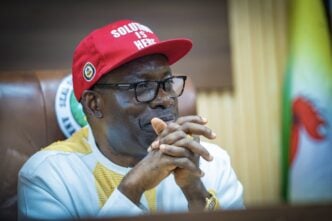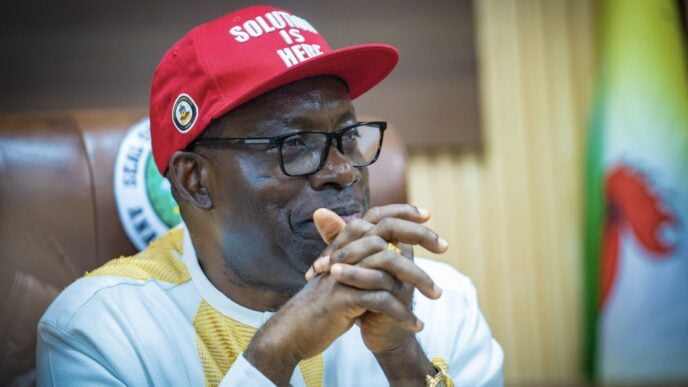I met him several times after he became Nigeria’s president in 2015, but the meetings did not change my impression of him as an enigma. Yet, as history peels back layer after layer of Muhammadu Buhari’s place, we may discover the essence of his beguiling simplicity.
Tight-lipped and taciturn, a soldier in bearing and character, his life was marked by complex dimensions that shaped his political and personal trajectory.
Escape route
Born on December 17, 1942, in Daura, northwest Nigeria, in a region now fraught with banditry and violent crimes, Buhari began his military career by joining the Nigerian Army in 1961. In a viral video, Buhari told his interviewer and former Minister of Communications and Digital Economy, Sheikh Ali Pantami, in Hausa that the army was an escape route to avoid being yoked with a bride in his early years – a culture still practised widely among his ethnic stock.
Advertisement
A less-publicised version of the story was that after losing his father at an early age, leaving him with very little family support, he went into the military to avoid being a burden to his maternal uncle.
Trained in Nigeria, Britain, India, and the United States, he fought in the Nigerian Civil War under the command of Olusegun Obasanjo’s Third Marine Commando Division. These exposures would likely shape his world view and disdain for a society where accountability had assumed a nebulous character and systems were being undermined.
Based on personal character and principle, Buhari would be selected by other military accomplices dissatisfied with the civilian administration’s economic management to lead the government after toppling the civilian administration of Alhaji Shehu Shagari in 1983.
Advertisement
These same accomplices would later find him too rigid, too stiff, and perhaps too honest. Like they had done to Shagari, they mobilised and rendered Buhari harmless through a palace coup barely two years later. Then they kept him in detention and solitary confinement for three years. He was in detention when his mother died, and his request to pay his final respects before her burial was declined, deepening his animosity with the Babangida regime.
A cult hero
Except for the legend of Ahmadu Bello or perhaps Aminu Kano, no individual in northern Nigeria has commanded the cult following and mass appeal that Buhari had. His reputation as an honest man effortlessly earned him a fanatical followership among ordinary folks. It became his best political capital, which, despite himself, was used to drag him into politics, a terrain a reclusive Buhari would have viewed from a distance.
His mass appeal was widely feared by the northern elite, who lacked the ordinary people’s trust. That appeal became a free vehicle on which many a political aspirant, without Buhari’s kind of credibility and self-denial, rode to political office. All they needed was to claim allegiance with Mai Gaskiya – the honest man.
Advertisement
Emotionally reserved, often projecting an image of stern seriousness, Buhari frequently left political associates guessing. His reserve contrasted sharply with the more charismatic and transactional disposition of Nigerian political figures, creating a mystique and ambivalence. His silence was a rather strange component of political dialectics.
Disdain for opulence
Buhari maintained a public image marked by disdain for corruptly acquired wealth and materialism. He frequently admonished people in public office to live by their means.
It is speculated in some circles that his separation from his first wife and mother of his first five children, Safinatu, was due to what he considered extravagant overtures made to her by Babangida’s wife, Maryam, while he was in detention. Until the end, there was no love lost between Buhari and Babangida – a fact once made bare in Buhari’s angry response to my question about the report of a military panel that advised Babangida’s removal before the 1985 coup.
Advertisement
His effort to promote governance that emphasised detachment from corruption and extravagance became flaccid under civil governance, where he delegated authority but failed to provide necessary supervisory oversight.
The war he never won
Advertisement
Divested of military authority, Buhari’s passion for rooting out corruption became an albatross. His Aviation Minister, Hadi Sirika, promised the nation a national airline that has become a reference for public ridicule and sheer callousness. His Minister for Justice, Abubakar Malami, brazenly waged turf wars and executed a vendetta on anticorruption officials. If you thought Buhari would be livid, he surprised everyone by doing nothing.
Despised by the elite and profiled by the media as a dictator, Buhari became a hostage in trying to prove he was a full convert to the democratic ethos. Only a Buhari would sit by and watch a minority party share strategic offices in the military, federal cabinet, and choice federal agencies overseen by the National Assembly, where his party had absolute control.
Advertisement
Cabinet appointees fully exploited such ambivalence, mostly career politicians with decades of experience gaming the system. It is, however, a credit to him that his non-interference in party issues and legislative processes strengthened the democratic process.
June 12 ‘coup’
Advertisement
Buhari’s military boss, Olusegun Obasanjo, reaped the windfall of the June 12 political impasse to placate Nigeria’s turn-by-turn political system. But it shall remain to the eternal credit of Buhari that he took deliberate action to resolve what had become a chasm on the country’s political map.
He went on to resolve other festering issues like settling veterans of the Nigerian Civil War on the Biafran side who had been abandoned; paying off the liabilities of Nigerian Airways employees liquidated by the Obasanjo administration; and fulfilling commitments made to the national football team by previous administrations after decades of official dubiousness and treachery.
Tough luck
Buhari won the presidency in 2015, and almost like a blast from a whistle, falling oil prices triggered a recession in the economy he had inherited on a false foundation. The country faced dramatic challenges, which heavily impacted oil production, with youth in the oil-producing Niger Delta, from where Buhari’s predecessor hailed, doubling down on the sabotage of oil infrastructure as vengeance for losing the 2015 elections.
Again, on the morning of his second term, the world took a hit from the COVID pandemic, which sent an already tottering economy closer to the cliff. The lockdowns sped up inflation and affected Buhari’s efforts to boost domestic food production. His frail health didn’t help matters.
Tunnel vision
Buhari’s tunnel vision focused intensely on anti-corruption and security, sometimes at the expense of broader governance issues. Thirty years after he left power and regained it, his mind still seemed frozen in the past compared with other rulers who benefited from a broader worldview even after leaving office.
This hampered his administration’s responsiveness to diverse socio-economic challenges. Issues like grazing routes and cattle colonies became fissures on an already fragile geopolitical balancing, in addition to perceived bias in political appointments.
Near abdication
If indifference and aloofness plagued Buhari’s presidency, this became even more palpable towards the conclusion of his second term. Unconcerned about the succession struggles within his party and the political manoeuvres of his central bank governor, who unleashed a self-serving currency redesign policy on the country, Buhari was signing off with low approval ratings even from his popular home base. The results manifested in the subsequent national elections.
The nation railed and whined that its president had no school certificate. Dissident groups contrived false images and spread malicious rumours that Buhari had died and that a “Jibril from Sudan” was the effigy in Aso Rock. Political engineers improvised a marriage in which the president was supposed to take his cabinet minister as a new wife – they even printed invitation cards. They must all have been confounded by Buhari’s superhuman silence. Or sometimes, by his sense of irony.
‘Baba Go-Slow’
For example, when I visited him with core Buharist and founding Chairman of LEADERSHIP, Sam Nda-Isaiah, a few months after the 2015 election, I was spooked by Buhari’s sense of humour. The Guardian on Sunday was among the pile of newspapers on a side table that day. He lingered on a page and lowered the paper. “Nda,” he said, which was how he called the LEADERSHIP publisher. “Who is the tortoise in this cartoon?”
“It’s you,” Sir. Nda-Isaiah replied. The cartoon was labelled ‘Baba Go-Slow’, a stinging commentary that it was taking him months to name his cabinet.
“You mean this is me?” Buhari exploded in laughter. Given the country’s desperate situation at the time, the humour was lost on me. But that, sometimes, was Buhari for you.
Ishiekwene is the editor-in-chief of LEADERSHIP and author of the book, Writing for Media and Monetising It.
Views expressed by contributors are strictly personal and not of TheCable.

